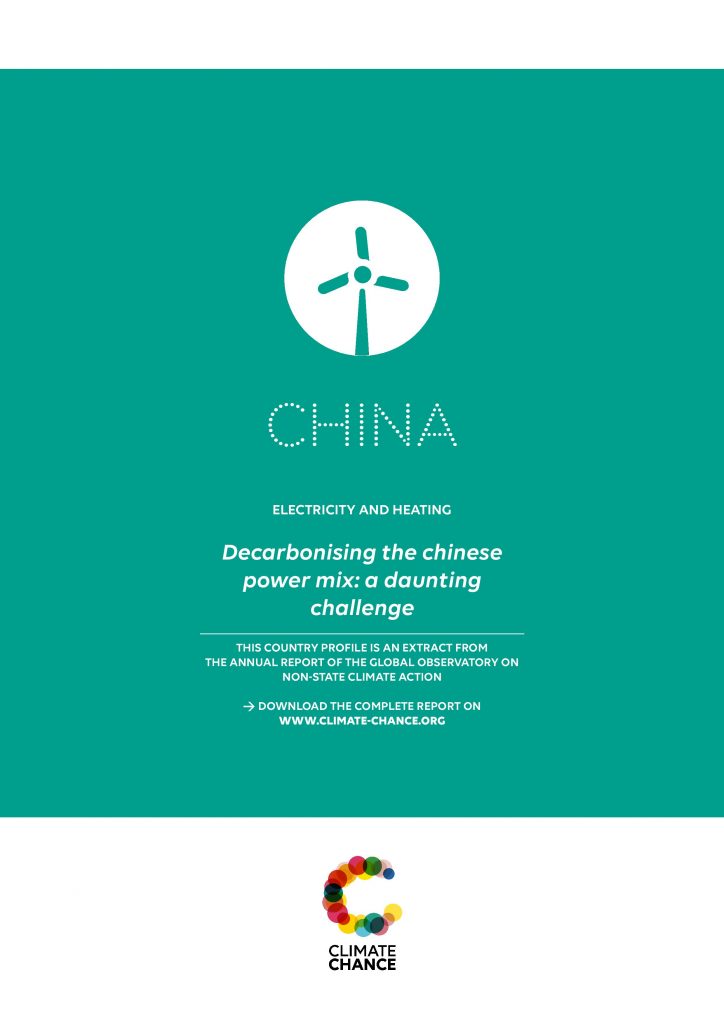China • Decarbonising the power mix: a daunting challenge
China’s vast population, economic weight and global influence make it naturally important for China to play a leading role in global efforts to combat climate change. Although these efforts are insufficient to offset the rapid growth in electricity demand, there has been remarkable progress in the carbon intensity of Chinese electricity.

Introduction
China’s vast population, economic weight and global influence make it naturally important for China to play a leading role in global efforts to combat climate change. Although these efforts are currently insufficient to offset the rapid growth in electricity demand, there has been remarkable progress in the carbon intensity of Chinese electricity. Contrary to what one would expect from a country with an authoritarian regime and a managed economy, non-state actors – in particular civil society, local authorities and businesses – play an important role in China’s electrical transition. What strategy has the country adopted and what lessons can be learned from it?
Contents
1 • Emissions from the electricity sector rise again
Emissions weigh heavily on the Chinese and worldwide assessment
The diversification of the Chinese mix is progressing
Carbon intensity drops but emissions continue to rise
2 • A strong political ambition
Taking a stand on the national and international scene
The modes of intervention of the Chinese government
3 • The role of local authorities
Project manager of local climate policy
The risks of competition between local author
4 • An impetus from civil society
5 • Businesses and economic circles
A sector largely controlled by the government
The place of local and private initiative
Conclusion
The Chinese government has a central role in determining and implementing emission reduction targets in the electricity sector. However, its decisions can only be understood in the light of the impetus given by civil society. In the same way, achieving the objectives is dependent on the action of local authorities and companies, who in practice enjoy large autonomy from the central power. If regulatory intervention remains one of the tools available to the Chinese government, the implementation of its climate ambitions will also largely depend on the effectiveness of this dialogue between the state and non-state actors.


